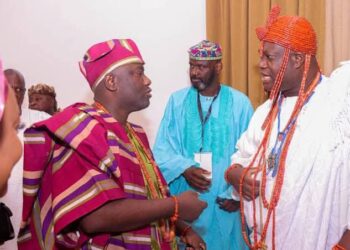
By Ibrahim Kegbegbe
As Felabration returns to Ibadan on Saturday, November 15, 2025, the city’s Liberty Stadium is set to come alive with the pulse of Afrobeat, art, and cultural rhythm. The annual festival, inspired by the legendary Fela Anikulapo Kuti, is more than a music event — it is a stage where genres meet, generations clash, and creativity is redefined.
Among the rich lineup of hip-hop artistes and DJs slated to perform this year, the inclusion of only two Fuji artistes — Alhaji Adebisi Akande Taye, popularly known as Taye Currency, and Alhaji Tirimisiyu Alamu, popularly known as Tiri Leather — has sparked conversations in music circles. Their selection, though deserving, raises deeper reflections about Fuji’s place in today’s musical landscape and, inevitably, brings one name back to mind: Alhaji Wasiu Alabi Pasuma, the indomitable Oganla of Fuji.
Fuji music, once the cultural heartbeat of the Southwest, has gradually found itself sharing the stage — and sometimes losing it — to hip-hop, Afrobeats, and street-pop acts. Yet, when Fuji is represented on such a global platform as Felabration, the artistes chosen often tell a story about the enduring influence of those who paved the path.
Taye Currency and Tiri Leather did not rise overnight. They are artistes whose voices were refined by sweat, struggle, and years of performing in local halls, community events, and neighborhood stages across Oyo State. Both represent the “self-made” category of Fuji musicians who climbed from the grassroots to national recognition — a journey not unlike that of Pasuma himself.
Taye Currency, also known as “Apesin Fuji,” is celebrated for his electrifying stage presence and street credibility. He modernized Fuji’s rhythm for younger audiences without abandoning its traditional depth. His story — from performing at local parties in Ibadan to sharing the stage with national stars — embodies the resilience that defines the Fuji spirit. Similarly, Tiri Leather, another product of Ibadan’s fertile music scene, is renowned for his lyrical strength and ability to connect Fuji’s philosophical roots with the vibrance of contemporary sound.
Their invitation to Felabration is, without doubt, a recognition of Fuji’s relevance even in an Afrobeat-dominated space. But it also reflects something more profound: the invisible hand of Pasuma’s legacy still guiding the genre’s evolution.
Pasuma, the Oganla 1 of Fuji, remains not only a performer but a living institution. His success inspired an entire generation of Fuji artistes — including Taye Currency and Tiri Leather — to blend traditional percussion with modern flair. Long before the fusion of Fuji and hip-hop became a trend, Pasuma had already done it, performing alongside pop icons and appearing on MTV, Soundcity, and global stages.
When Pasuma entered the Fuji scene in the 1990s, he disrupted the old order. He democratized Fuji — bringing it from the elite gatherings of Lagos to the grassroots of Agege, Ibadan, and Ilorin. He sang about love, hustling, politics, and street survival — themes that later became the foundation of Nigerian street-pop. His collaborations with hip-hop artistes like Olamide, Qdot, and 9ice blurred the boundaries between genres, ensuring that Fuji stayed relevant even as Afrobeats dominated global airwaves.
It is therefore no coincidence that the two Fuji artistes performing at Felabration Ibadan — both from Oyo State — belong to the generation that benefited from Pasuma’s audacity. Taye Currency, for instance, once acknowledged in interviews that Pasuma’s ability to maintain relevance across decades is an “inspiration to every Fuji act who refuses to fade.”
But the irony remains striking: why only two Fuji artistes in Ibadan, a city historically seen as the cradle of Fuji’s cultural purity? Could it be that event organizers see Fuji as a niche sound rather than a national art form? Or is it that the genre’s current torchbearers have yet to find the global rhythm that Afrobeat enjoys today?
These questions make the inclusion of Taye Currency and Tiri Leather even more symbolic. They represent a genre fighting to stay visible in a musical space that often prioritizes commercial appeal over cultural heritage. Yet, through their voices, the soul of Fuji — and the influence of Pasuma — continues to breathe.
Pasuma’s name may not be on the Felabration lineup, but his spirit will echo through the rhythms, the talking drums, and the raw energy that these Fuji artistes will bring to the Liberty Stadium stage.
READ ALSO:Love in Melody: Bullion Records’ Artiste Harcher Drops ‘Your Wedding Day’ to Celebrate Eternal Union
In every syncopated beat of their performance lies a reminder: Fuji may not dominate every playlist, but it remains the foundation of Nigeria’s musical identity. And as long as artistes like Taye Currency and Tiri Leather continue to hold the mic, they will carry the legacy of the man who turned Fuji into a bridge between the streets and the stars — Wasiu Alabi Pasuma, the eternal Oganla of Fuji.

















